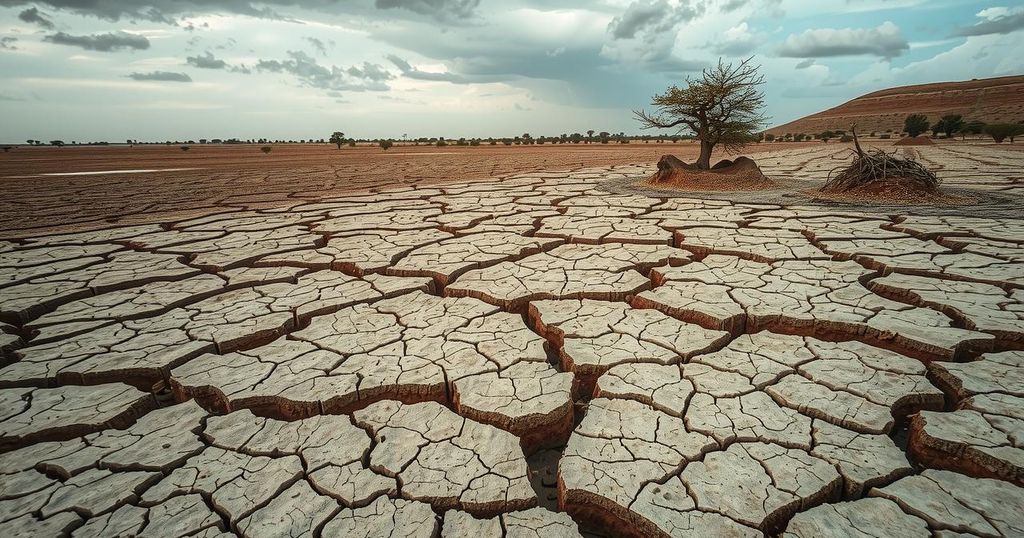Kenya is experiencing its worst drought in four decades, impacting millions who lack water and food. This situation has intensified due to climate change, prompting the need for increased financial support from developed nations as articulated at the recent COP29 conference. The “Baku Climate Unity Pact” aims to enhance resilience in vulnerable countries, though translating promises into actionable solutions poses a significant challenge.
Kenya is currently grappling with its most severe drought in 40 years, significantly affecting millions of inhabitants who are struggling with acute shortages of water and food. This unprecedented crisis exhibits a worrying trend, as the climatic patterns which previously followed regular seasons have become increasingly erratic. Agricultural and livestock-reliant communities in arid and semi-arid regions face existential threats as rising temperatures exacerbate the situation, leading to dwindling water sources such as rivers, lakes, and aquifers. Consequently, women and children in northern Kenya are compelled to travel vast distances daily to procure contaminated water from underground sources, exposing them to harmful diseases.
During the 2024 UN Climate Change Conference (COP29) held in Baku, Azerbaijan, Kenyan representatives emphasized the urgent need for enhanced financial aid from developed nations to devise and implement adaptation strategies. One of the pivotal outcomes of this conference was the endorsement of the “Baku Climate Unity Pact,” which outlines collective financial commitments to support the most vulnerable countries and offers a strategic plan for global climate adaptation. This initiative aims to bolster the resilience of nations like Kenya, which face adverse effects from climate change despite contributing minimally to global greenhouse gas emissions.
The outcomes of COP29 represent a laudable commitment to aid countries severely affected by climatic adversities. However, a considerable challenge lies ahead: translating these commitments into effective actions that genuinely alleviate the impacts of drought and climate change for Kenya and similar nations.
The topic of drought in Kenya is a crucial issue closely tied to climate change and its adverse effects on vulnerable populations. Historically, droughts in Kenya were part of a predictable cycle, directly affecting agricultural activities and the availability of livestock. In recent years, the frequency and intensity of these droughts have escalated, leaving millions without access to essential resources. This ongoing crisis necessitates urgent global attention and coordinated action to support those affected, particularly in the context of international climate agreements aimed at fostering adaptation and resilience in nations most impacted by climate change.
In conclusion, the drought currently facing Kenya is a pivotal crisis that underscores the pressing issues stemming from climate change, affecting millions of individuals who rely heavily on water and agricultural resources. The recent discussions at the COP29 conference highlight an important international commitment to supporting affected nations through financial aid and collective action. However, the critical task ahead remains the implementation of these pledges to translate them into real-world solutions that benefit communities grappling with the detrimental effects of climate change.
Original Source: www.aljazeera.com






